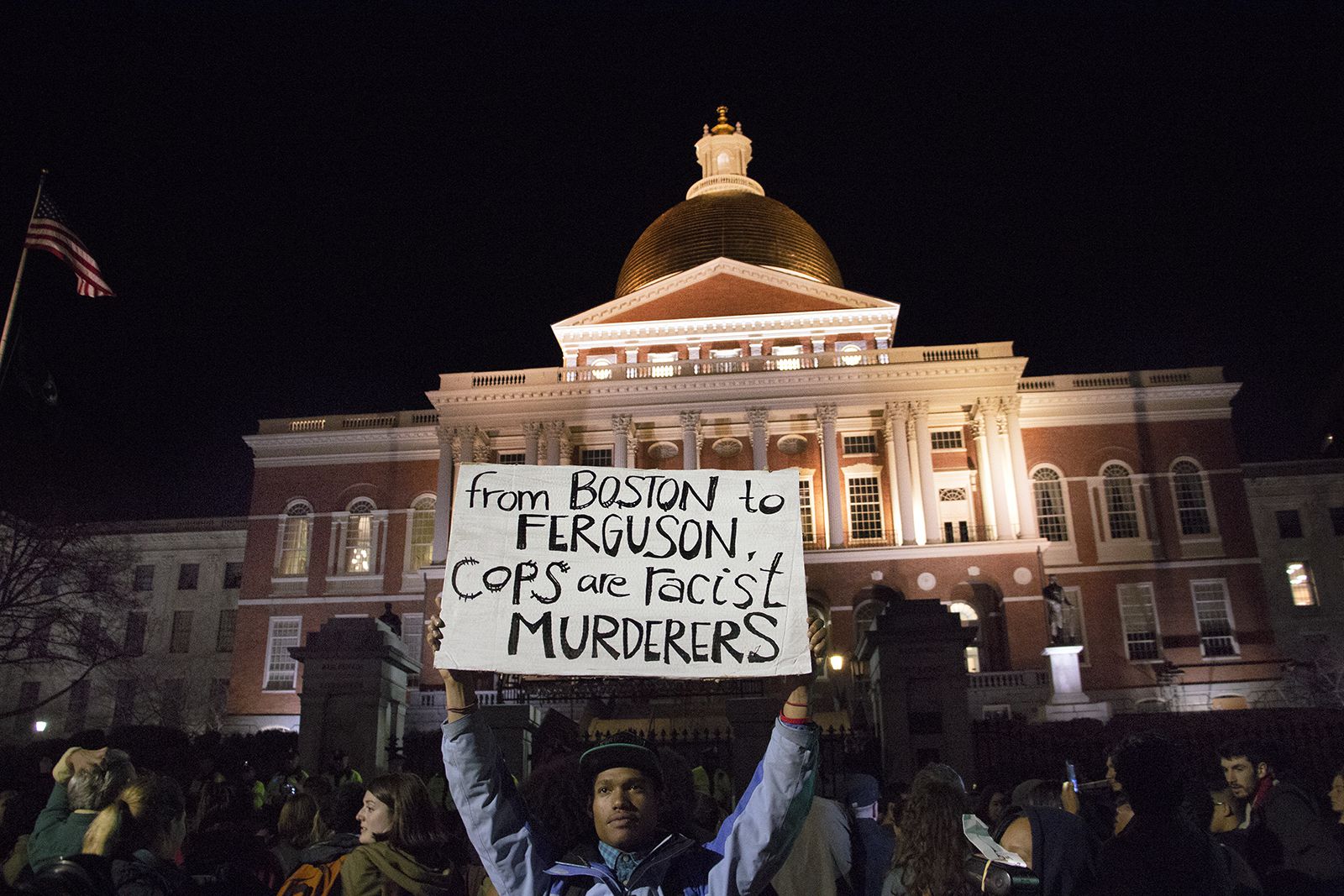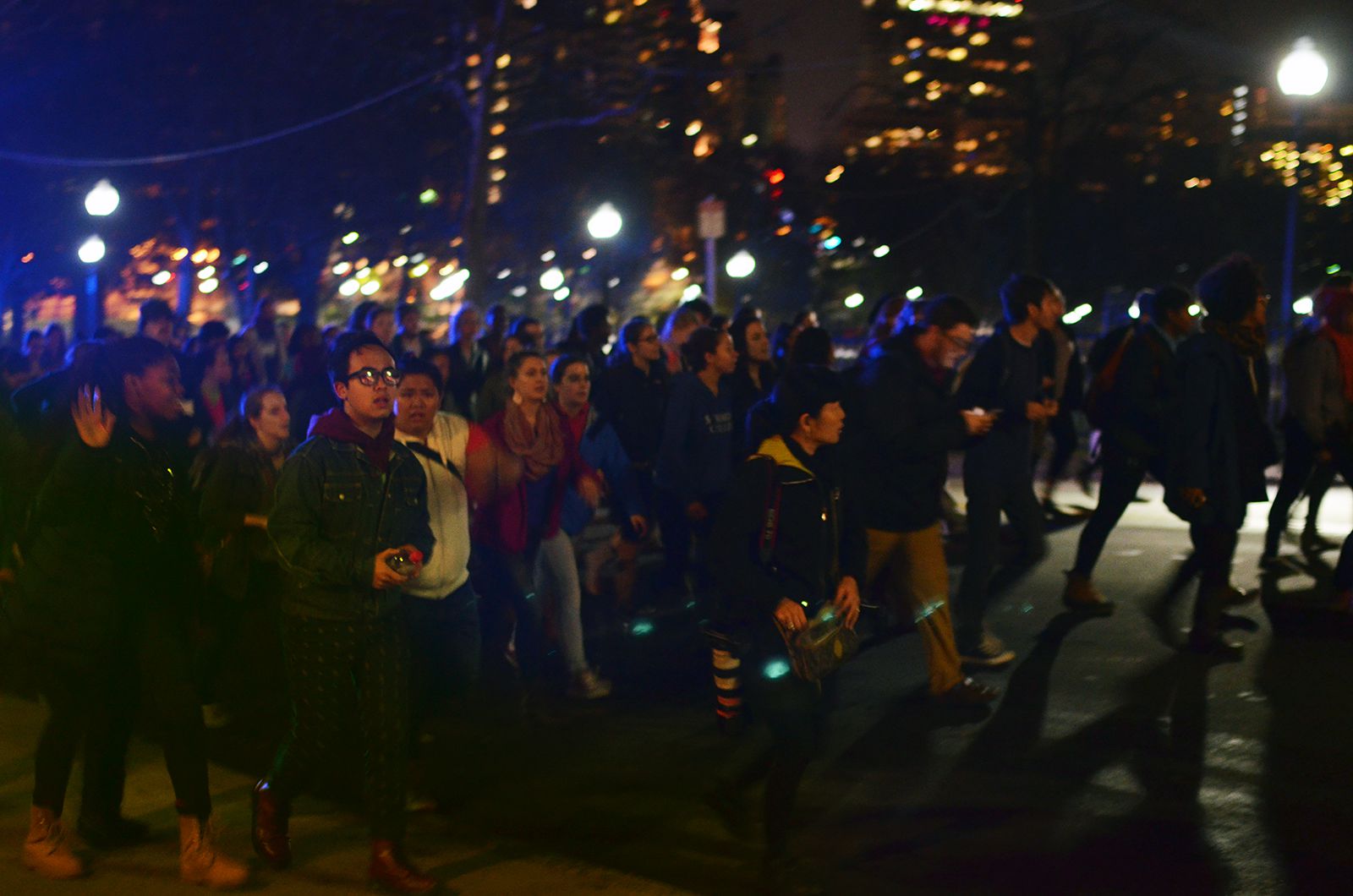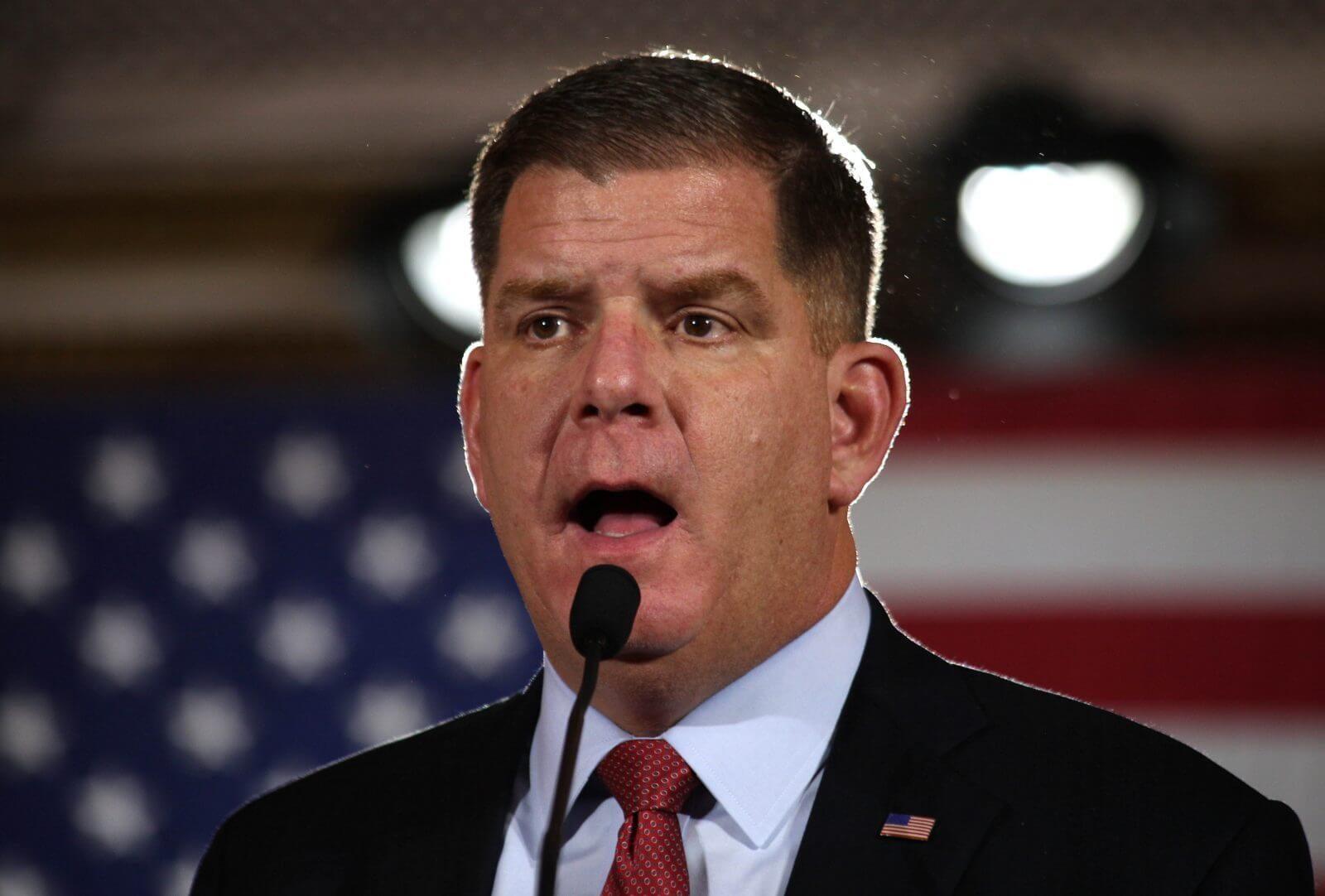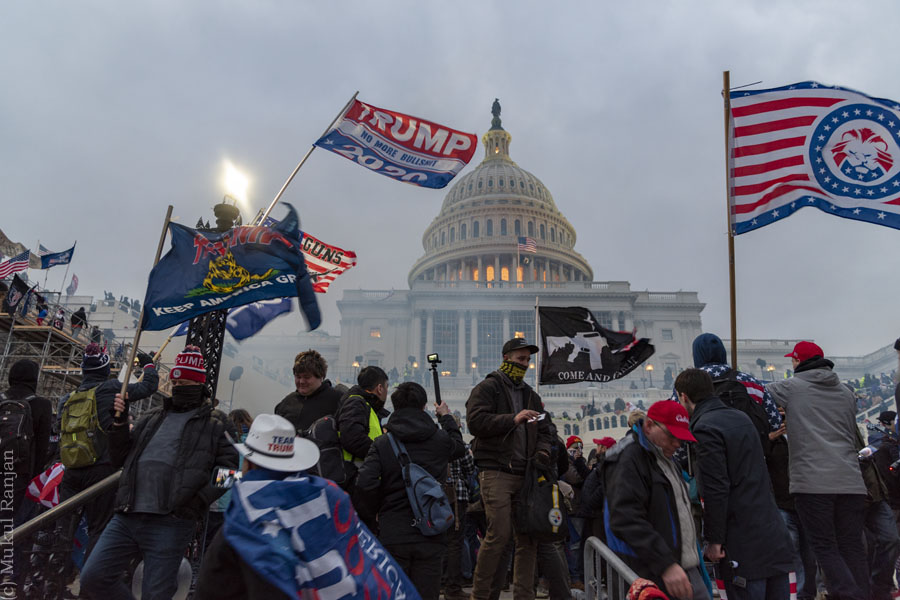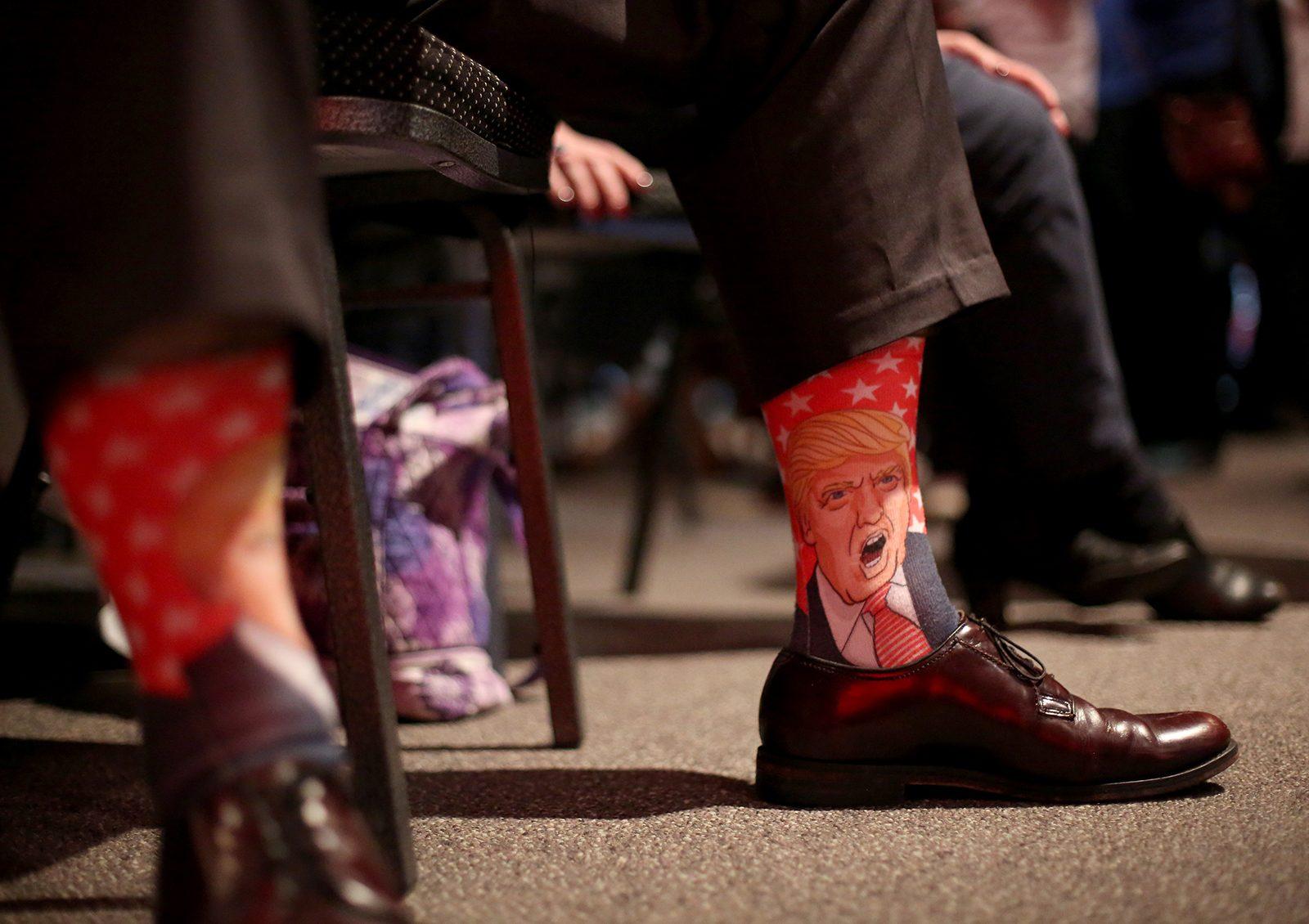Following the Monday evening release of the St. Louis County grand jury’s decision not indict Ferguson Police Officer Darren Wilson for the death of Michael Brown in Ferguson, Missouri, hundreds of people took to the streets of Boston to peacefully protest.
Brown, 18, was unarmed when he was fatally shot on Aug. 9 after a brief altercation with Wilson in Ferguson. The case escalated racial tensions in Ferguson and throughout the country, as Brown, a young black male, was shot and killed by a white veteran police officer in an incident with unclear circumstances.
“After their exhaustive review of the evidence, the grand jury deliberated over two days, making their final decision,” said St. Louis County Prosecutor Robert McCulloch in the Monday announcement. “They determined that no probable cause exists to file any charge against Officer Wilson.”
Brown’s family requested four and a half minutes of silence after the ruling was announced, representing the four and a half hours Brown laid on the street after he was shot.
“We are profoundly disappointed that the killer of our child will not face the consequence of his actions,” said Lesley McSpadden and Michael Brown, Sr., Brown’s parents, in a statement. “While we understand that many others share our pain, we ask that you channel your frustration in ways that will make a positive change. We need to work together to fix the system that allowed this to happen.”
St. Louis Mayor Francis Slay spoke publicly hours before the grand jury decision was announced and said peaceful protests will be permitted, but violence and damage to property will not be tolerated.
“What happened to Michael Brown has deeply divided us,” he said. “Whatever is announced this evening, some people are going to be angry and frustrated, and some people are going to be angry and frustrated about that.”
In a public address to the nation Monday following the announcement, U.S. President Barack Obama said this decision was the grand jury’s to make, as we are “a nation built on the rule of law.” He expressed sympathy to Brown’s parents for their loss and asked that those who protest to do so peacefully.
“It’s an outcome that, either way, was going to be subject of intense disagreement, not only in Ferguson, but across America,” Obama said. “We need to recognize that this is not just an issue for Ferguson. This is an issue for America. We have made enormous progress in race relations over the course of the past several decades. I’ve witnessed that in my own life. And to deny that progress I think is to deny America’s capacity for change.”
Meanwhile, Boston Mayor Martin Walsh acknowledged how difficult the process has been for all involved, and addressed the impending protests as a result of the decision.
“We welcome these expressions, done respectfully, responsibly and peacefully,” he said. “The Boston Police Department has been working closely with a wide range of community members to ensure the highest level of collaboration and unity tonight and in the coming days.”
After the final decision not to indict Wilson was made, approximately 300 Boston residents congregated at Boston City Hall and marched to the Massachusetts State House, where they protested peacefully, sang and chanted in unison.
Outside the State House, protesters stood silently, holding hands amongst Boston police officers and Massachusetts state police officers. After several minutes of calm, the crowd erupted in a chant: “When I say Mike, you say Brown!”
The group of mostly young protesters also broke out in song, personalizing “This Little Light of Mine,” singing, “All the way from Ferguson, I’m gonna let it shine.”
Carl Williams, an attorney for the American Civil Liberties Union of Massachusetts, said the decision did not surprise him, and the protest was an example of what true democracy looks like.
“This is great, because people weren’t planning on coming out, so this is spontaneous black and brown people and people that support them standing up for what real justice is,” he said. “This is what democracy is supposed to be.”
The crowd eventually converged on the State House, facing approximately 12 silent police officers and chanting, “Hey hey, ho ho, these killer cops have got to go.” They moved in again, still peaceful, and began sharing personal stories and feelings about the decision.
Across the city and at Boston University, college students reflected upon their own opinions about the grand jury’s decision.
Sheldon Carpenter, a freshman in BU’s College of Arts and Sciences, expressed concern about the message the decision would send to Americans.
“It [the message] kind of can be taken in two paths,” he said. “It’s either going say A, they [the community] can do whatever they want and nothing’s going to really come out of it, or B, they’re just going to be too afraid to do anything.”
Anna Krzywiec, a freshman in CAS, was concerned about the immediate ramifications of the decision in Ferguson.
“My only concern is what’s going to happen to the community,” she said. “It’s just that I feel like things are going to really blow up, and it’s going to be a big concern, because things were already blowing up when Brown was shot, so at this point, after things have cooled down and now that the jury’s result is out, I think that brings an even bigger concern to the community.”
Zenaida Peterson, a senior at Simmons College, organized the protest in the city and said it originated out of the need to take action.
“Before what happened at the State House, a few people at Simmons were together and were really upset and couldn’t stay in our rooms anymore,” she said. “So basically, we came down by Park Street, walked and march and chanted to City Hall, where we met some other organizers.”
Adebukola Ajao, a junior at Emmanuel College and president of the Black Student Union, also attended the protest and said it is important for people to have a space to speak about grievances.
“We [college students] don’t have a space to talk about this,” she said. “When we come together like this, this looks dangerous. But we’re not being dangerous. We’re just letting our grievances out. The fact that you’re young and you’re coming together is dangerous. They think this is a black or white thing, but this is more than that. This is a human thing.”
Gabriela Arriaga, J.D. Capelouto, Stephen Friedman and Stephanie Pagones contributed to the reporting of this article.





















































































































